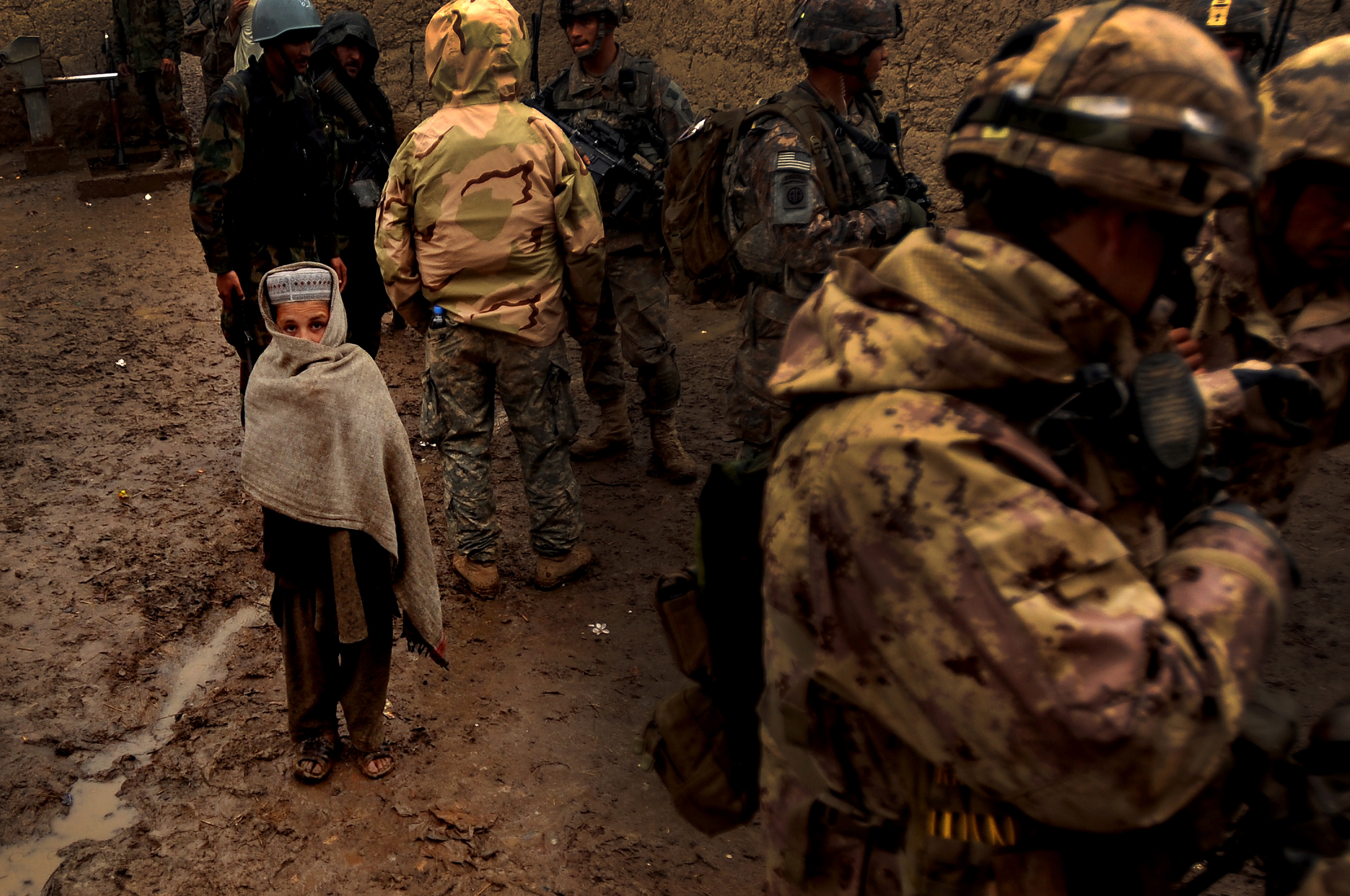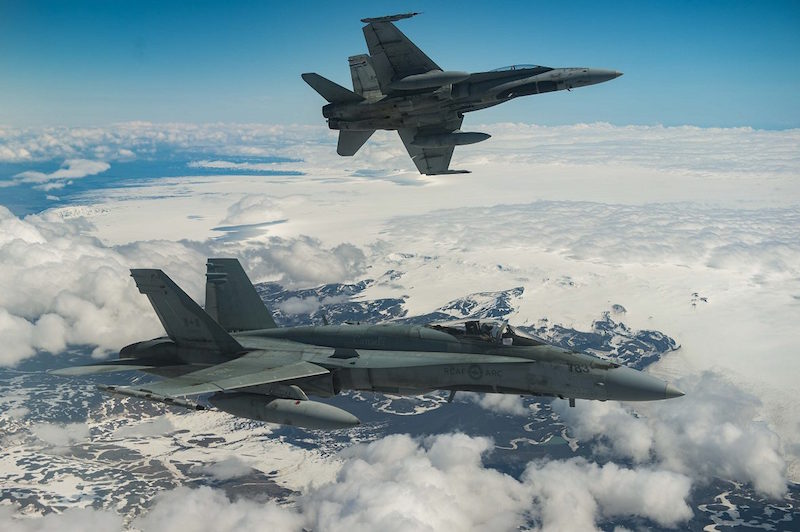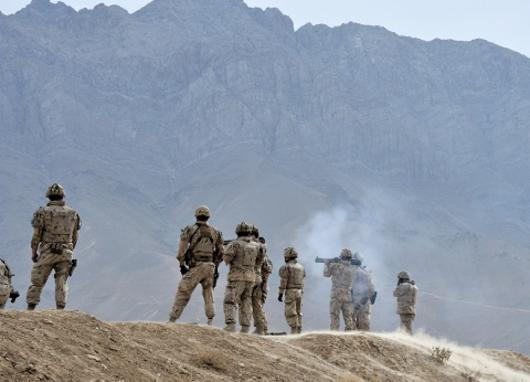“Assad must go.” Three words articulated by President Barack Obama in August 2011 have come to define the very policy imposed on Syria. The Syrian civil war is now nearly five years old, and yet, there is still no reasonable solution in sight. Although airstrikes have been the only effective measure of impeding the expansion of ISIS to date, the real challenge that remains is the establishing of a legitimate use of force once airstrikes against ISIS become ineffective or are ended. So much of what is needed to respond to the crisis developing within the Syrian civil war and the rise of ISIS has been ignored.
The war in Afghanistan was conducted in order to eradicate Al-Qaeda terrorists. The United States, along with countless other Western states have engaged in many of their longest wars to date to degrade such opposition and establish democracy by means of regime change, albeit without much success to date.
It has now become apparent that a military defeat of the Taliban during the war in Afghanistan was never truly feasible, because the underlying problem was political. In every instance, the logic of regime change entails a target state behaving “in a way that the intervener finds objectionable or threatening, and the intervener believes that installing new leadership will correct that behaviour.” Many Western states have reacted to the external challenges posed by September 11, 2001, by transforming from a state focused on multilateral cooperation to that of a state concerned with the preservation of its sovereignty through the implementation of its foreign policy.
That said, the West has abandoned its pre-9/11 aversion to nation building and has come to view failed states not only as a humanitarian problem, but also as a security threat to international order. Thus, the focus on democracy promotion has become a fundamental political outcome of the war in Afghanistan in which Western states are now focused on the notions of “preemptive action, unilateralism, primacy, and idealistic democracy.” However, the implementation of regime change more often than not produces a rise of violence as a result of its inevitably privileging certain individuals or groups while alienating others. Regime change in Afghanistan has only further provoked powerful insurgencies and uprisings that continue to this day, resulting in one threat being replaced by a larger one.
…Western obsession with Assad may have prolonged the bloodshed of the Syrian people and coalition forces.
This prescription for fixing Afghanistan through combining a highly centralized state and governance programs, “supplemented with expensive development projects, was based on modern liberal norms and social engineering methods largely disconnected from Afghanistan’s reality as a diverse and underdeveloped Islamic nation” The failure of regime change bred further violence and corruption within Afghanistan because this seemingly political strategy led the Western-led coalition to seek out and prop up their preferred leadership, but the West lacked the political knowledge of the target country and the backlash such regime change was likely to produce.
With government corruption continuing to be a problem from top to bottom, it is undeniable that the assured regime change in Afghanistan has not produced a fully functional and stable state. The establishment of a new regime selected by Washington, that can hardly extend its governance beyond the capital city has led over time to the resurgence of extremist forces, along with the unexpected revival of the Taliban as a serious political challenger for control of the fragile country. In fact, the Taliban control and influence as much as 20% of Afghanistan, its highest levels of control since 2001. It therefore becomes apparent that regime change is not enough, and will certainly fail to promote democracy because many target states lack the necessary preconditions for a sustainable democracy.

Certainly, the overthrowing and regime change of the Assad government will not ease tensions within the Syrian civil war or the battle against ISIS; and as such, it is not necessary or appropriate to create such political transition. Rather, this Western obsession with Assad may have prolonged the bloodshed of the Syrian people and coalition forces. Any ambitions to improve the way a nation is governed leads to uncontrolled sociopolitical explosion, which is the best way to create a vacuum for terrorism.
Recognizing that the Syrian conflict is much too overwhelming for any one Western power to solve and too significant for regional powers to ignore, the anti-ISIS coalition must see eye to eye in the stabilization of the Assad Syrian government and pursue a negotiated political settlement. Once such diplomacy has been achieved, this would allow for Assad’s army, along with the Canadian Armed Forces and the Western coalition to turn their attention on ISIS in a sequential operation. This strategy does not mean allying with Assad or treating him as a partner, but rather putting the goal of ending the fighting with ISIS before the goal of toppling Syria’s government.
Given these points, a negotiated political settlement is of the utmost importance and should be the first priority because ISIS will not be defeated or even properly contained while an enduring civil war wages in Syria. Without a negotiated political settlement, the civil war coupled with the threat of ISIS will continue to destabilize the region for years to come and will ultimately provide a sanctuary for ISIS to rise and demonstrate its global reach of terror.
So let the previous wars in Iraq and Afghanistan serve as a stark reminder that failed institutions and political marginalization gives rise to future conflict. As such, negotiations between the Assad regime and the Western anti-ISIS coalition are in the best interest of both sides. This may ensure that the Syrian regime will not collapse and that Assad will not share the fate of Muammar Gaddafi of Libya or Suddam Hussein of Iraq.
Photo courtesy of Kenny Holston (United States Air Force), Combat Camera
Disclaimer: Any views or opinions expressed in articles are solely those of the authors and do not necessarily represent the views of the NATO Association of Canada.




